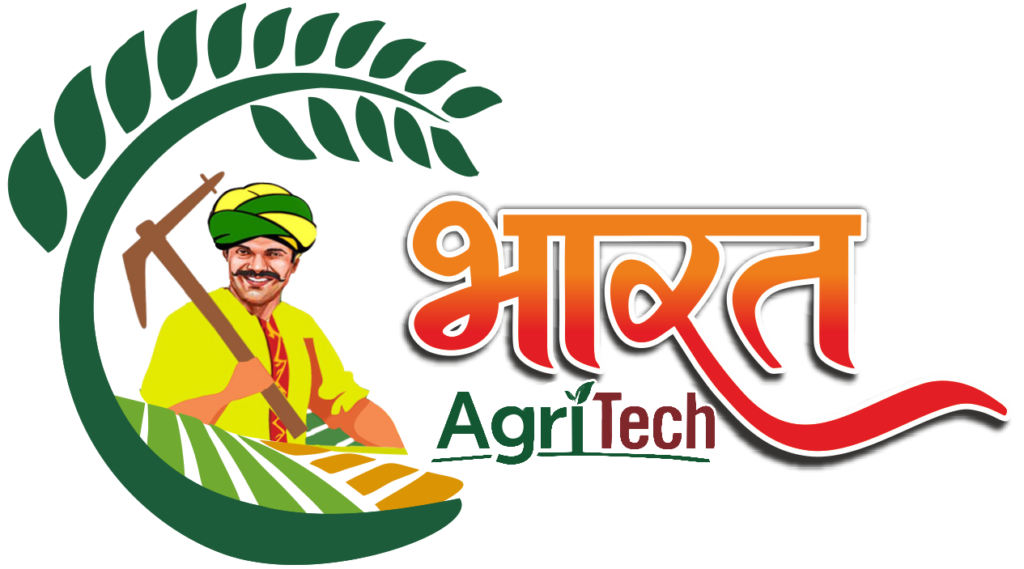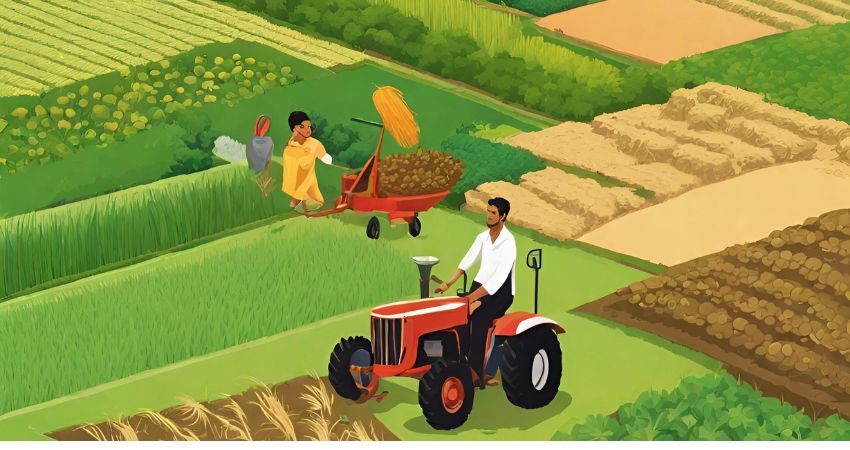Introduction
In the vast expanse of India’s agricultural landscape, two distinct paradigms coexist: conventional farming, rooted in modern agricultural practices, and organic farming, anchored in traditional wisdom and sustainability principles. This blog explores the contrasting approaches of Indian farming versus organic farming, delving into their methodologies, impacts, and potential for harmonious coexistence.
Indian Farming
Indian farming, often synonymous with conventional or modern agriculture, relies heavily on the use of synthetic fertilizers, pesticides, and genetically modified crops. Adopting mechanization, chemical inputs, and monoculture practices, Indian farmers strive to maximize yields and meet the growing demands of a burgeoning population. While conventional farming has significantly boosted agricultural productivity, it has also raised concerns about soil degradation, water pollution, and loss of biodiversity.
Organic Farming
In contrast, organic farming embodies a holistic approach to agriculture, emphasizing natural inputs, biodiversity conservation, and ecological balance. By eschewing synthetic chemicals and embracing organic fertilizers, crop rotations, and biological pest control methods, organic farmers prioritize soil health, environmental sustainability, and human well-being. Organic farming not only produces nutritious, chemical-free food but also fosters resilience to climate change and promotes biodiversity conservation. In Organic farming mostly used of cow-based manure.
Key Differences:
- Input Usage: Indian farming relies on synthetic inputs such as chemical fertilizers and pesticides, whereas organic farming emphasizes natural inputs like compost, manure, and biopesticides.
- Soil Health: Conventional farming practices can degrade soil fertility and structure over time, while organic farming enhances soil health, microbial diversity, and carbon sequestration.
- Environmental Impact: Conventional farming may contribute to environmental pollution, water contamination, and habitat destruction, whereas organic farming promotes ecosystem resilience, water conservation, and biodiversity conservation.
- Health Considerations: Organic farming produces food free from synthetic chemicals and residues, potentially reducing health risks associated with pesticide exposure and chemical residues in food products.
Challenges and Opportunities
While organic farming offers numerous benefits, it also faces challenges such as limited access to organic inputs, lower yields in the short term, and lack of market infrastructure. Additionally, transitioning from conventional to organic farming requires time, resources, and farmer training. However, with increasing consumer demand for organic produce, government support for organic farming initiatives, and growing awareness of environmental and health benefits, organic farming presents promising opportunities for Indian agriculture
Scope of Organic Farming in India
Organic farming holds immense potential in India, driven by increasing consumer demand for safe, chemical-free food, and growing awareness of environmental sustainability. With fertile land, diverse agro-climatic zones, and rich traditional knowledge, India is well-positioned to embrace organic farming practices. Government initiatives, supportive policies, and certification programs further bolster the scope of organic farming, offering opportunities for smallholder farmers to improve livelihoods, enhance soil health, and mitigate climate change impacts. As India charts a path towards sustainable agriculture, organic farming emerges as a promising avenue for fostering food security, environmental stewardship, and rural development.
Government Scheme to Promote Organic Farming:
Paramparagat Krishi Vikas Yojana (PKVY):
Launched by the Ministry of Agriculture and Farmers Welfare, PKVY encourages farmers to adopt organic farming methods and practices. Under this scheme, groups of farmers are encouraged to form clusters and cultivate organic crops using traditional and indigenous methods. The scheme provides financial assistance for inputs, organic certification, capacity building, and market linkage support to promote organic farming and improve the income of farmers.
Health benefits of Organic Food
Organic food offers several health benefits compared to conventionally grown produce, largely due to the absence of synthetic pesticides, herbicides, fertilizers, and genetically modified organisms (GMOs). Here are some of the key health benefits associated with consuming organic food:
- Reduced Exposure to Pesticides: Organic farming prohibits the use of synthetic pesticides, which can leave residues on fruits, vegetables, and grains. By choosing organic produce, consumers can minimize their exposure to potentially harmful chemicals linked to health issues such as cancer, neurological disorders, and hormone disruption.
- Higher Nutritional Value: Studies have shown that organic fruits, vegetables, and grains often contain higher levels of certain nutrients, including antioxidants, vitamins, and minerals. Organic farming practices, such as soil enrichment and crop rotation, promote soil health and biodiversity, resulting in nutrient-rich produce.
- Lower Risk of Antibiotic Resistance: Organic livestock farming prohibits the routine use of antibiotics and growth hormones, which are commonly used in conventional animal agriculture. By consuming organic meat, dairy, and eggs, consumers can reduce their risk of ingesting antibiotic residues and contributing to the development of antibiotic-resistant bacteria.
- No GMOs: Organic food is produced without the use of genetically modified organisms (GMOs), which have raised concerns about potential health and environmental risks. Choosing organic ensures that consumers avoid GMOs and support agricultural practices that prioritize biodiversity and sustainability.
- Support for Sustainable Agriculture: Organic farming practices focus on soil health, water conservation, and ecological balance, contributing to the long-term sustainability of food production. By supporting organic agriculture, consumers help preserve natural resources, protect biodiversity, and mitigate climate change impacts.
Conclusion
In Bharat Agri tech we provide Organic farming Training with NABARD, Agriculture Department and ATMA. Including Free workshop and Conferences.
In the dynamic landscape of Indian agriculture, the dichotomy between conventional and organic farming offers both challenges and opportunities. As we navigate the path forward, it is essential to recognize the complementary nature of these approaches and strive for a harmonious coexistence that prioritizes sustainability, resilience, and equitable access to safe, nutritious food. By embracing diversity in agricultural systems and fostering innovation, Indian farming can evolve towards a more sustainable and inclusive future, nourishing both people and planet for generations to come.

